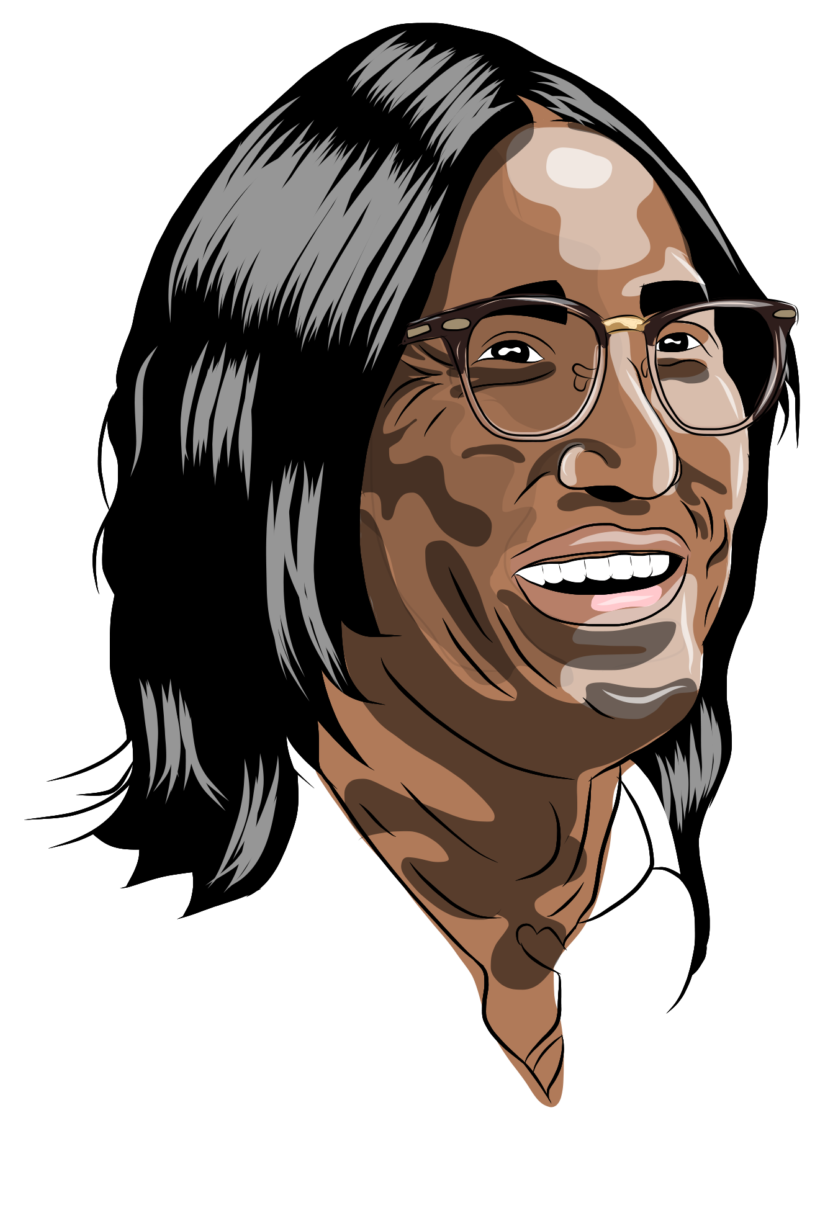Written by Tyler Hehn
Illustration by Ashly July
One Native Life, Ragged Company, Iron Horse. These are the titles of publications that helped carve the legacy of Richard Wagamese into stone. He was an accomplished, award-winning journalist and author, whose calm and pleasant demeanor never detracted from his powerful messages. His stories were specific, descriptive, raw, concise and insightful. If hammering a nail is a metaphor for making a point, he would have a house built in a flash without a sound.
“My teachers tell me that the most fundamental human right in the universe is the right to know who you were created to be. And the corollary to that teaching is that the greatest crime is to deny somebody the right to know who they were created to be,” Wagamese said concerning the premise of his book Iron Horse, during a talk at the University of British Columbia.
Born in 1955, Wagamese never really knew home. As a child younger than five, he was abandoned by elders with his siblings on a winter day without food or fire. They were eventually saved by a passing OPP officer and surrendered to a Children’s Aid Society. From there he was sent to multiple foster homes, finding a permanent one from the time he was nine until he was 16.
This foster home was anything but that. He felt like an outcast, and at times a prisoner. The residential schools from the ‘60s – ‘90s are now commonly referred to as Canadian crimes against humanity. Wagamese was never in a residential school, but his process was similar with the people he refers to as his adopted family in his memoire One Native Life. The residence with his adopted family seemed to have an agenda- they wished to replace his heritage with more homogenous ideals. Like if a wolf were to be swept up into a dog pound.
He would eventually escape from his foster home life, only to struggle with life on the road. In and out of employment, often homeless, he developed substance abuse problems. He remembered the writings he did during his youth, expanding on them to address the problems he faced. He found solace, and permanent employment, in writing when he began working for the Calgary Herald in 1979. He would eventually win a National Newspaper Award for his work there in 1991, the first indigenous writer to do so. His first novel followed shortly after in 1994.
He was always cautious to not say or write too much, choosing his words carefully so he would maximize the meaning of every word. At just 221 pages, his most recognized piece Iron Horse, was, he admitted, written like a journalist. It is the story of a young indigenous boy finding a haven from the heritage-stripping residential schools when he played hockey. Screen Siren Pictures is currently developing the book for a film adaptation.
Beyond writing styles, Wagamese had a rich and beautiful personality. Waubgeshig Rice, an Anishinaabe writer just like Wagamese, says that he was the type of person who could brighten an entire room with only his presence.
Rice remembered his first encounter with Wagamese. He said that early in his career he and Wagamese would talk over email or through phone calls about writing. He would offer Rice help, or give suggestions. Eventually, and surprisingly, they met on a shuttle bus.
“I didn’t see him get on that bus. The bus driver had to come to the back of the bus to do a roll call and he heard me! He came back and sat with me right away and it was like we had known each other my whole life. It was like meeting a long lost big brother for the first time,” Rice said.
Wagamese’s legacy shouldn’t be defined by only awards, accolades or publications sold. Rice says the words he wrote should incite togetherness between all walks of life.
“He was proud of who he was as an Anishinaabe person, and he was proud of the journey he made and what he accomplished. He was also very candid about the difficulties he had and the struggles he continued to endure on his path,” Rice said.
“That will be a big part of his legacy too, his healing journey that sort of blazed a trail for others to follow that path and to find a way for themselves to heal while they’re reclaiming their culture or their identity.”
“You could talk to a lot of different people whether they read his works, or he mentored them or they were familiar with his work as a journalist, I think he made his mark in a lot of different ways in a lot of people’s lives,” Rice said.
At 61, Richard Wagamese passed away peacefully in his home in Kamloops B.C.

